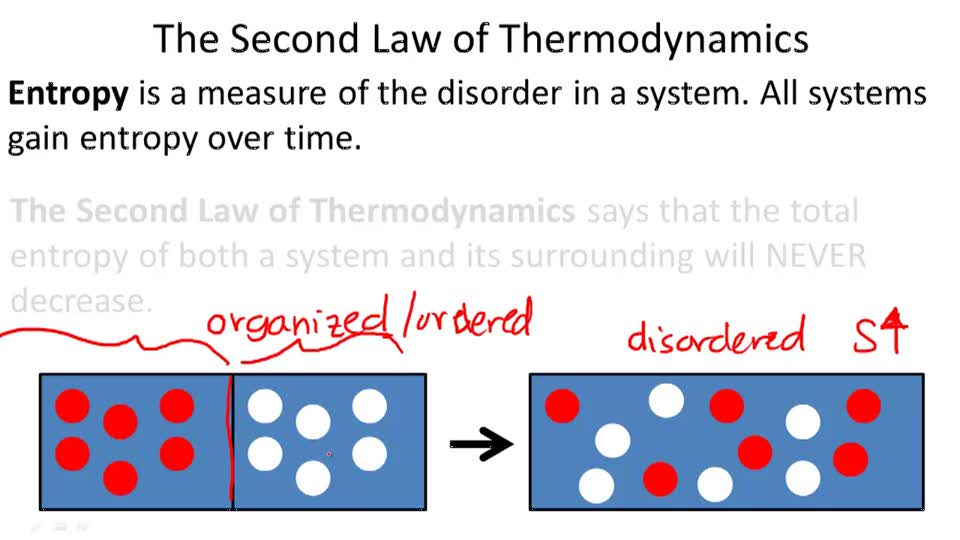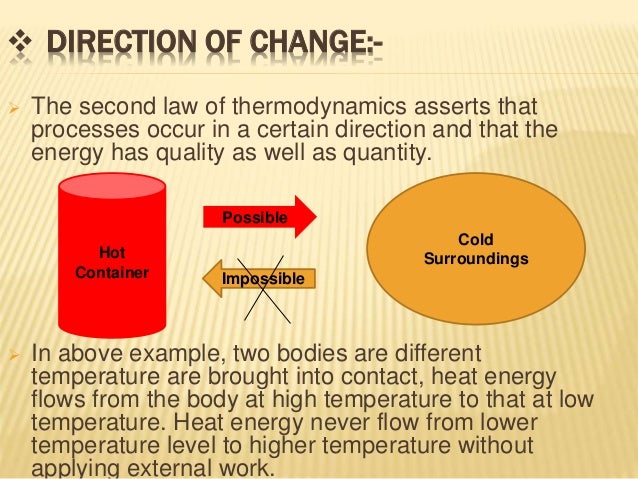

There must be losses in the conversion process. For example, it is not possible to convert all the energy obtained from a coal in coal-fired power plant or from a nuclear reactor in a nuclear power plant into electrical energy.

One of the areas of application of the second law of thermodynamics is the study of energy-conversion systems. So the second law is directly relevant for many important practical problems. The second law of thermodynamics places constraints upon the direction of heat transfer and sets an upper limit to the efficiency of conversion of heat to work in heat engines. However, no information about the direction of the process can be obtained by the application of the first law. The first law is used to relate and to evaluate the various energies involved in a process. The second law of thermodynamics is a general principle, that goes beyond the limitations imposed by the first law of thermodynamics. It follows, perpetual motion machines of the second kind are impossible. From this law follows that it is impossible to construct a device that operates on a cycle and whose sole effect is the transfer of heat from a cooler body to a hotter body. Reversible processes are a useful and convenient theoretical fiction, but do not occur in nature. This law indicates the irreversibility of natural processes. In a natural thermodynamic process, the sum of the entropies of the interacting thermodynamic systems increases. Stars are hotter than planets, for example, which are warmer than icy asteroids, which are warmer still than the vacuum of the space between them.The entropy of any isolated system never decreases. Although it may have seemed disorderly, and therefore, superficially entropic, in fact, there was enormous potential energy available to do work-all the future energy in the universe.Īs the universe matured, temperature differences arose, which created more opportunity for work.

Gravity played a vital role in the young universe.

In the early, energetic universe, all matter and energy were easily interchangeable and identical in nature. Heat Death of the Universe: An Overdose of Entropy


 0 kommentar(er)
0 kommentar(er)
